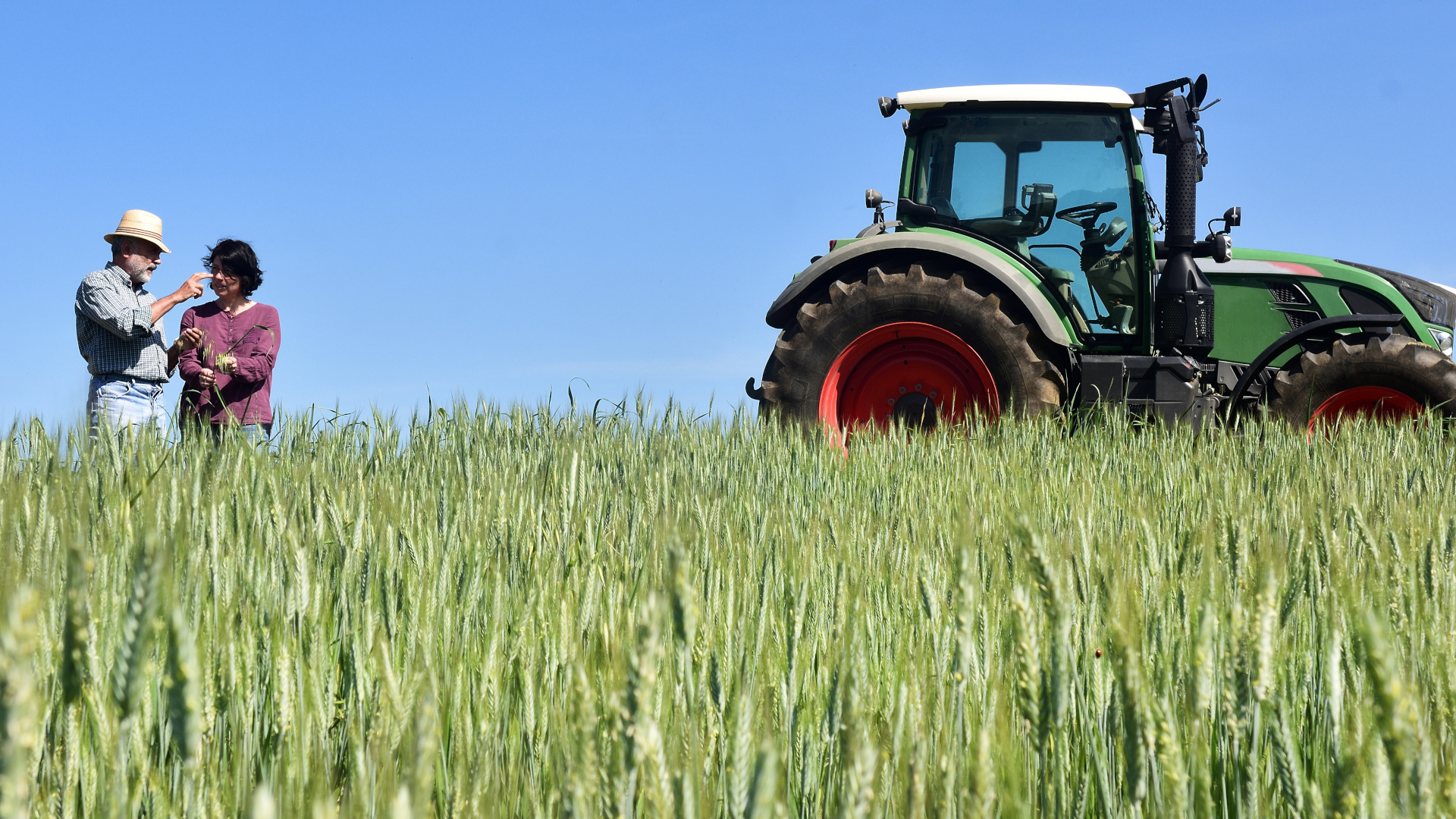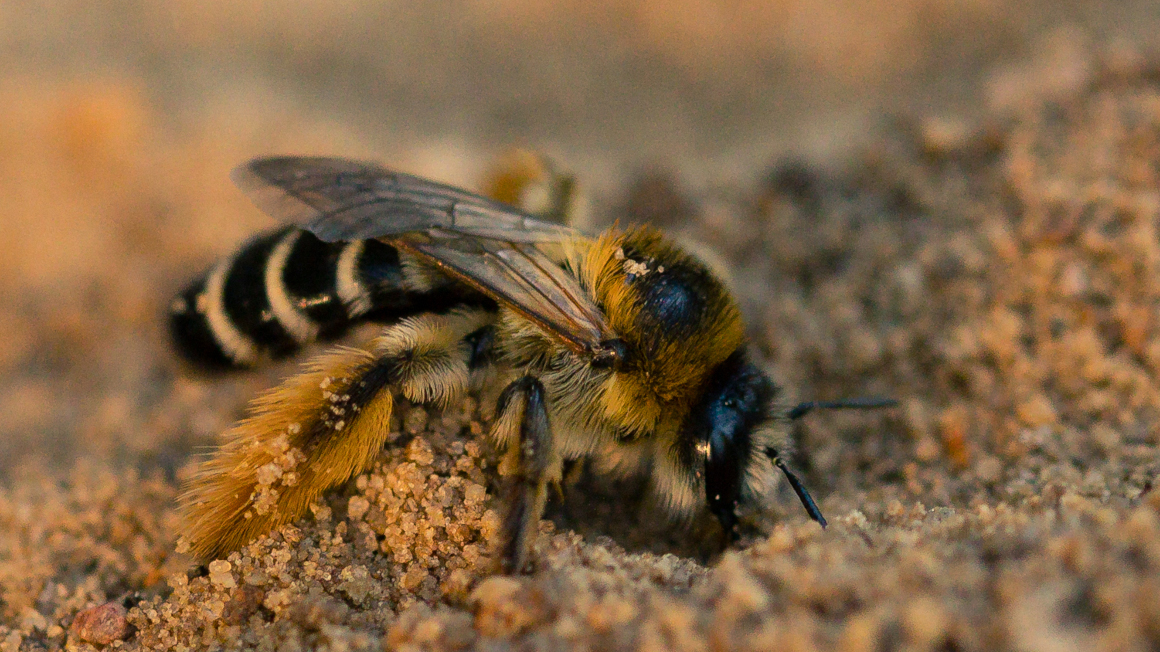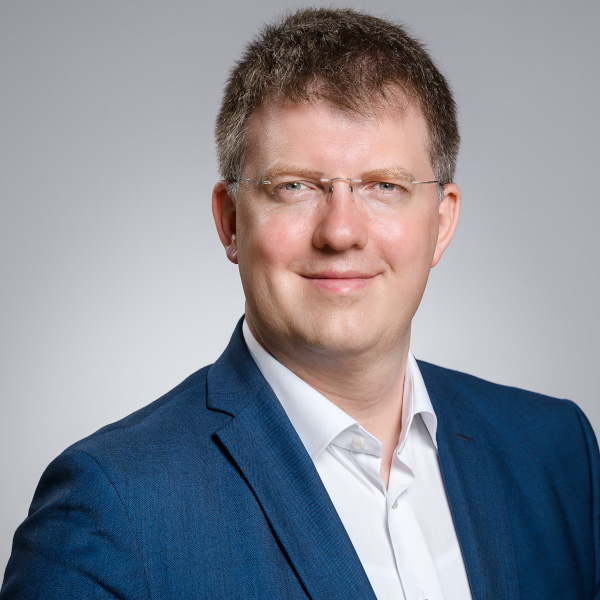Focus on soil research
How can soil research support a sustainable bioeconomy? The network BonaRes provided the answer to this and other questions during their recent international conference in Berlin.
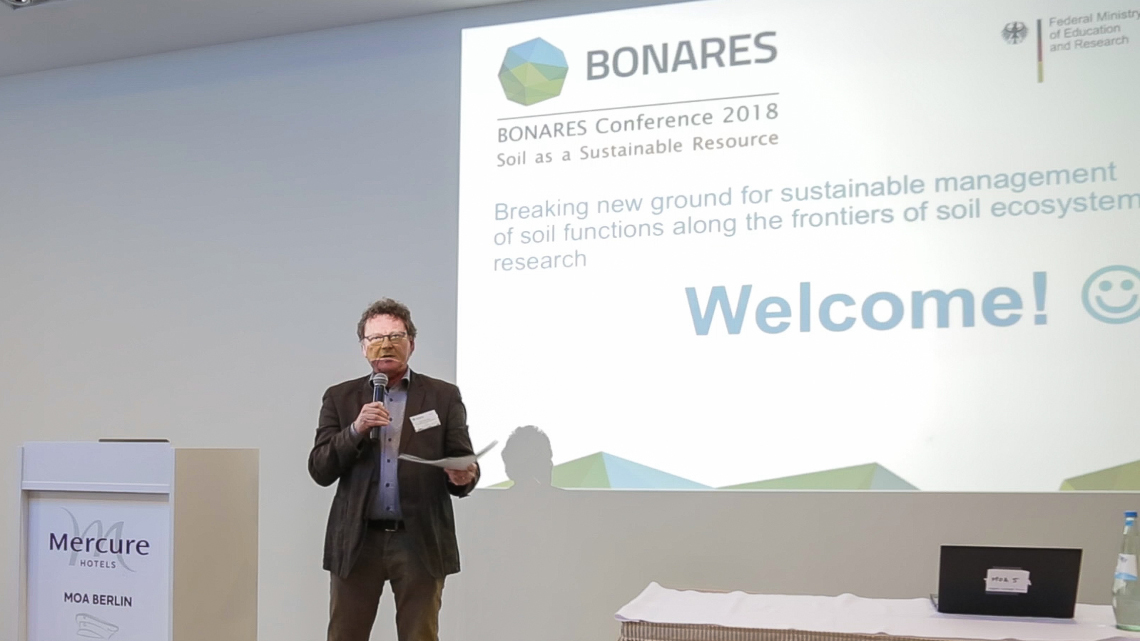
An estimated 300 soil researchers came together in Berlin for the BonaRes conference from February 26 to 28 to discuss their newest findings regarding the soil. The main focus of the three-day event, however, was on the newest results from the ten projects of the Federal Ministry of Education and Research (BMBF) financed soil research network “BonaRes - soil as a sustainable resource for the bioeconomy”. To date, €42 million have been invested in the initiative, by the year 2019 the total sum will amount to €100 million.
Complex topics require a systemic approach
At the beginning of the event, Andrea Noske, Head of BMBF unit Bioeconomy, summarised the first three-year funding period. "The evaluation by international experts was very positive and all projects can move into the second phase," she was glad to report. The funding also raises the hope of creating an important basis for the further development of the bioeconomy. Noske said, "We need a systemic approach to studying soil functionalities to understand the complexity of the soil and its impact on the ecosystem."
The soil research network BonaRes
“BonaRes” is short for “Soil as a sustainable resource for the bioeconomy”. In this funding initiative of the German Federal Ministry for Education and Research (BMBF) the focus is on the sustainable use of soils as a limited resource. The ultimate goal of BonaRes is to extend the scientific understanding of soil ecosystems and to improve the productivity of soils and other soil functions while developing new strategies for a sustainable use and management of soils.
A total of ten research projects are funded by the BonaRes funding initiative of the BMBF.
More information about the initiative: www.bonares.de
New funding measure and European initiatives
In addition, Noske announced another BMBF funding measure scheduled for autumn, which will be dedicated to investigate the influence of the soil microbiome and root system of plants. Moreover, a new European initiative under the umbrella of Horizon 2020 was also introduced: the "European Joint Programming on Agricultural Land Management" initiative is due to start in autumn 2018, as well. German funding partners will be the BMBF and the Federal Ministry of Agriculture.
Taking into account BonaRes and the visibl growing soil research community, coordinator Hans-Jörg Vogel from the Helmholtz Center for Environmental Research in Halle also drew a positive conclusion. To begin with the meeting was initiated as a status meeting of the funding initiative, now an international conference had been established. "Especially for the topic of soil, it is very important to bring together many experts from different disciplines," says Vogel.
The science programme kicked off with a keynote speech by British soil researcher Richard Bardgett at the University of Manchester. Afterwards, the participants of the conference were invited to learn about the current status of the ten BonaRes projects as well as the BonaRes Center in three parallel sessions.
The conference programme was densely packed with keynote lectures and parallel sessions reporting on the current status of the BonaRes projects. More information about the conference: www.bonares2018.de
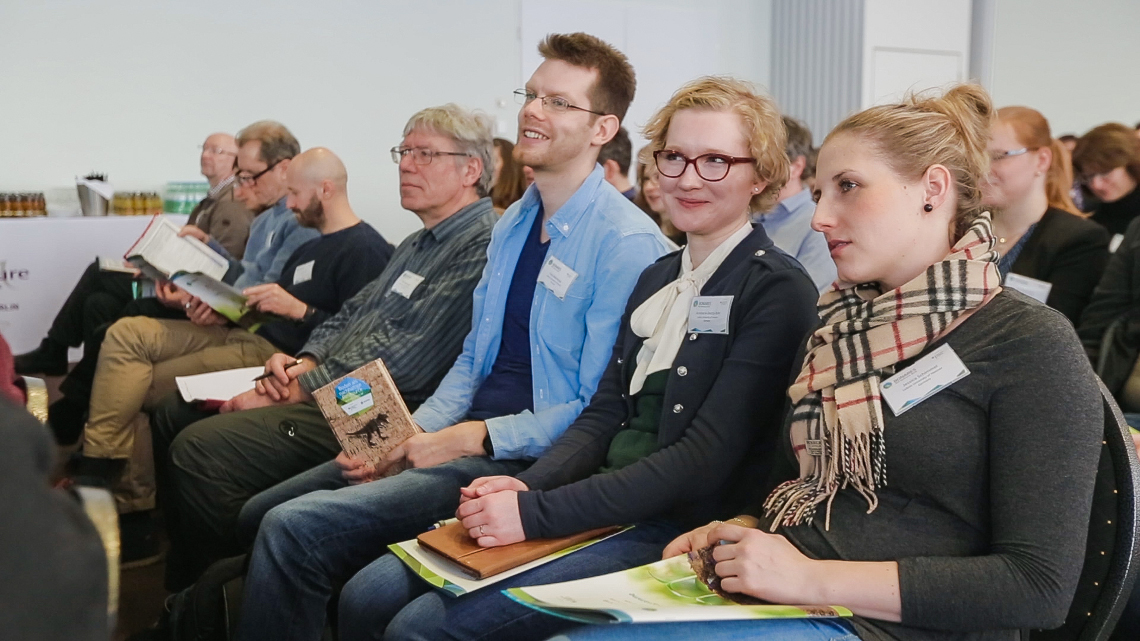
Digitisation will shape the future of soil research
One of these sessions, for example, focused on digital technologies and state-of-the-art measurement technology. Topics such as sensor-based soil mapping, modeling approaches and software-based soil management systems were on the agenda. "The fourth industrial revolution also presents us with new and major challenges in agriculture: Agriculture 4.0 is based on data," emphasized Cornelia Weltzien of the Leibniz Institute of Agricultural Engineering and Bioeconomy (ATB) in her introduction to the session.
According to Weltzien, in order to get a complete picture of the complex soil system, there can never be too many sensors mounted on agricultural machines. The challenge for the scientists now is to store the data collected via various digital systems and make them accessible to farmers. At the ATB, a new soil sensor platform was developed as part of the BonaRes project I4S. The aim is to record and analyse the diversity of agricultural soils via various parameters. The results then provide farmers with a decision-making aid on how nutrients or water can be supplied.
The vision of the researchers is clear: The sensors, which are checking the condition of the soil today, will become an assistance system for agriculture tomorrow. Such an approach is also pursued by Stefan Pätzold of the University of Bonn. He is analysing the condition of the various soils in Germany using mobile gamma spectroscopy. If the farmers know the exact soil conditions, they can then select the most suitable plants and set fertilization strategies accordingly.
Intelligent systems for healthy soil
Maike Siekmann and Marco Lorenz, both from the Johann Heinrich von Thünen Institute in Braunschweig, presented their results on the interdisciplinary research project SOILAssist. The BonaRes project is focused on agricultural soil protection during the arable land. To that end they are surveying changes in soil structure in order to avoid negative consequences on the functionality of the soil. "Depending on the load, an agricultural machine can cause damage up to 50 cm deep in the ground," explained Siekmann. As a result, the complex soil system is disturbed to such an extent that the next harvest can be negatively affected. Intelligent systems and adapted management should prevent soil damage in the future and enable a healthy soil condition.
jmr/sw
